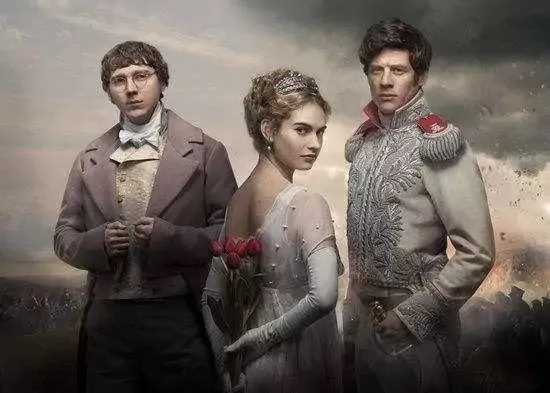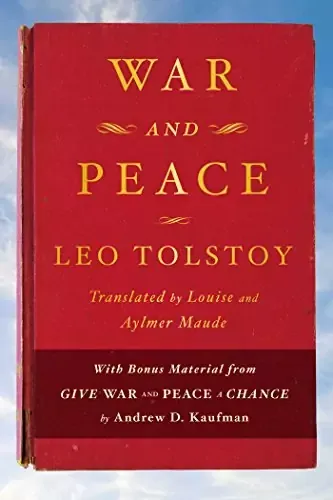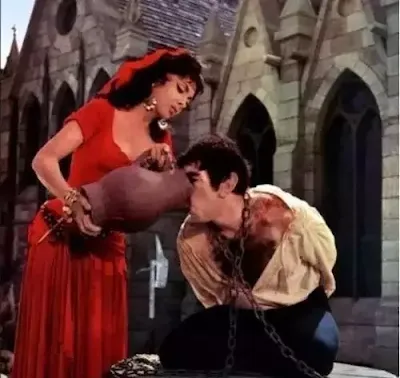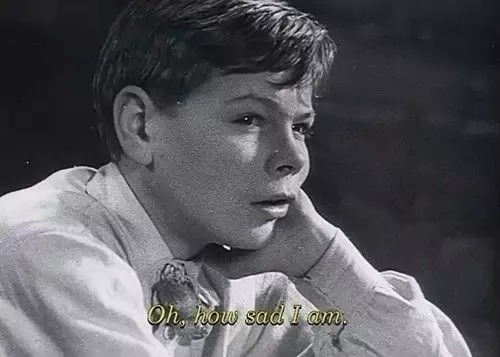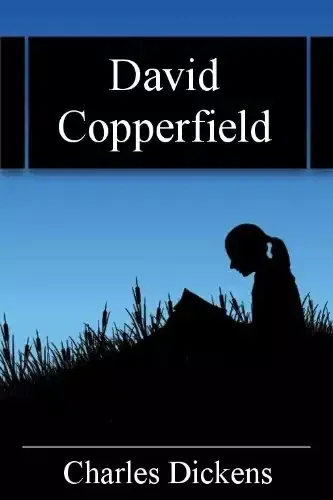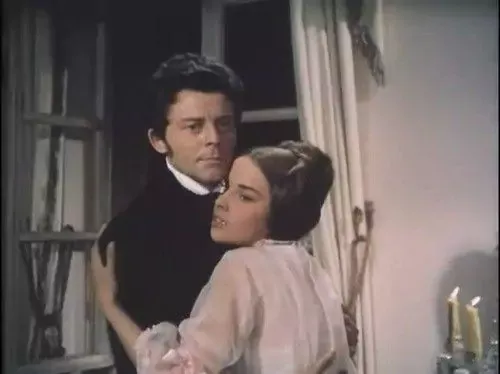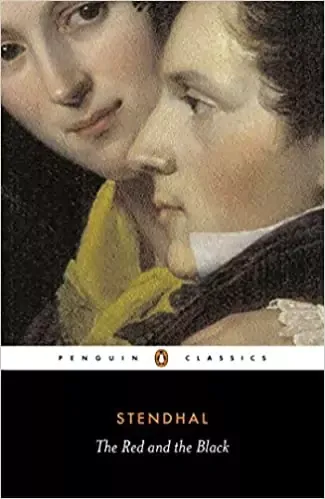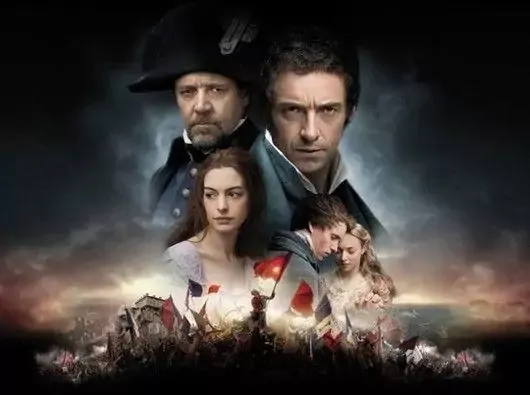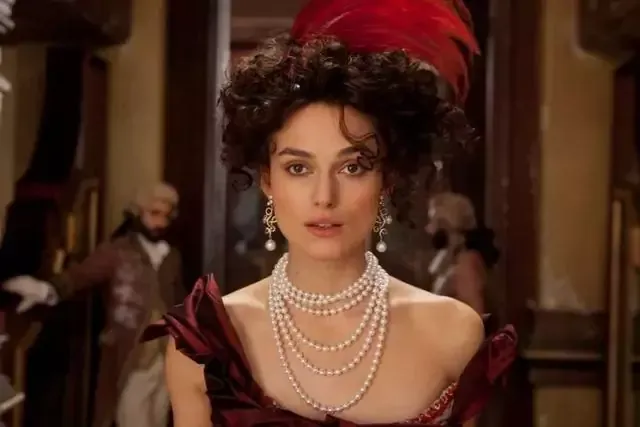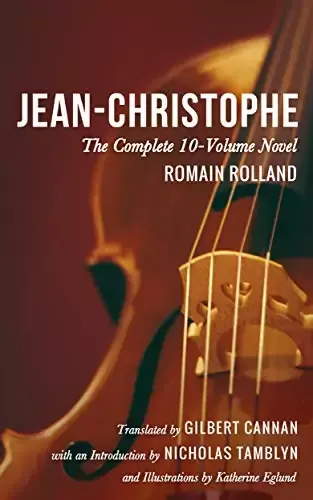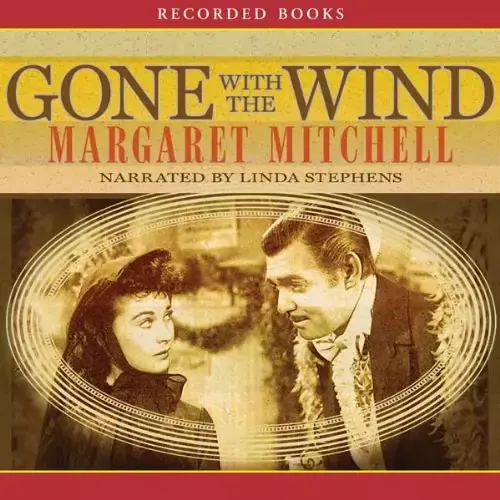What Are The Top 31 Masterpieces of Books In The World?
1. War and Peace by Leo Tolstoy
2. Notre Dame de Paris by Hugo
The novel adopts the romantic technique of reflecting on real life with ancient historical themes.
3. Childhood by Maxim Gorky
4. Wuthering Heights by Emily Bronte
5. David Copperfield by Charles Dickens
Click Here To Check Out More Author Charles Dickens Books on Amazon.
6. Red and Black by Stendhal
7. Les Miserables by Victor Hugo
8. Anna Karenina by Leo Tolstoy
Click Here To Check Out More Author Leo Tolstoy's Books on Amazon.
9. Jean-Christophe by Romain Rolland
10. Gone With The Wind by Margaret Mitchell
11. The Brothers Karamazov by Fyodor Dostoevsky
Dostoevsky has to be said to be a genius novelist. In fact, every one of his novels is worth reading for every reader,
but "The Brothers Karamazov" is definitely the best of his works. Although a novel is a bit boring, as long as you read it, it will definitely help you.
12. A Dream of Red Mansions by Cao Xueqin
I think "Dream of Red Mansions" is in the front, there is no dispute, that this is an encyclopedic novel, which contains not only poems and songs but also lingering love,
I believe that as long as anyone reads "Dream of Red Mansions", they will have such a feeling, how can the author be so knowledgeable; so many things can be held in the stomach.
So "Dream of Red Mansions" is very worth reading, and you have to read it repeatedly. As long as you understand "Dream of Red Mansions", your life will definitely be different.
13. One Hundred Years of Solitude by Gabriel Garcia Marquez
"One Hundred Years of Solitude" is a representative work of magic realism literature in Latin America, and is known as "a masterpiece that reproduces the historical and social picture of Latin America".
The work describes the legendary stories of seven generations of the Buendia family and the century-old rise and fall of Macondo, a small town on the Caribbean coast, reflecting the changing history of Latin America over the past century.
The works incorporate mysterious elements such as myths and legends, folk tales, and religious allusions, skillfully blending reality and fantasy, presenting a magnificent imaginary world, and becoming one of the important classic literary masterpieces of the 20th century.
14. The Buddenbrooks by Thomas Mann
Thomas Mann may be one of the few German-language writers I like, and when he wrote The Magic Mountain, he was very young, as if he remembered that he was only 26 years old.
Imagine a young man in his 20s who could write such a novel Come, you can see how profound his knowledge is.
15. The Castle by Franz Kafka
Kafka is a genius writer, and many of his novels, although his "Castle" has not been finished, are equally fascinating.
16. Great Expectations by Charles Dickens
Dickens wrote many novels in his life but personally think that his best novel is "Great Expectations", which is very worth reading.
17. Romance of the Three Kingdoms by Luo Guanzhong and Martin Palmer
If you read "The Romance of the Three Kingdoms" as a historical novel, then I would say that you are a failed reader.
To read this novel, you must first put aside history and read it as a pure novel. In this case, In order to be able to gain something.
18. The Magic Mountain by Thomas Mann
Thomas Mann is also a very talented writer. Although this novel looks like a running account on the surface, when you think about it deeply, it is by no means as simple as a running account. It is completely a philosophical novel.
19. The Great Gatsby by Scott Fitzgerald
At the end of the 20th century, American academic authorities selected the 100 best novels from a century of English literature, and "The Great Gatsby" ranked second, proudly among the ranks of contemporary classics.
In America in the 1920s, the air was filled with singing and drinking. By chance, the poor staff Nick got into the hidden world of the millionaire Gatsby who spends money like water, and he was surprised to find that the only thing in his heart was the little green light on the other side of the river --- in the whirling lights, living with his beloved Daisy.
However, the cold reality cannot accommodate misty dreams. In the end, the goddess in Gatsby's heart is just a material girl in the world.
When all the truth comes to light, Gatsby's tragic life is like fireworks, the brilliance is only a moment, and the disillusionment is eternal.
A gorgeous "Jazz Age" elegy, written by Fitzgerald, is like a poem like a dream, leaving a deep ink mark in the history of contemporary American literature.
20. Lolita by Vladimir Nabokov
"Lolita" is Nabokov's most famous and controversial novel masterpiece. Most of the pages are the confessions of death row prisoner Humbert, describing the abnormal love story between a middle-aged man and an underage girl.
Originally not authorized for distribution in the United States, the novel was first published in Europe by Olympia Press in Paris in 1955.
In 1958, the American version was finally published, and the work soared to first place in the "New York Times" bestseller list.
21. Middlemarch by George Eliot
There are two main lines in the book "Middlemarch". One is the disastrous marriage and disillusionment of the idealistic girl Dorothea, and the other is the tragic failure of the marriage and career of the young doctor Lydgate.
The author uses techniques such as contrast, symmetry, parallelism, and repetition to subtly intertwine these two main lines and write many characters into it, successfully expressing the disillusioned theme of "society frustrates people".
After the publication of "Middlemarch", Eliot's psychoanalysis method attracted the attention of critics. With the in-depth study of Eliot by later generations, her psychoanalysis techniques have been fully affirmed and highly praised by critics.
With her innovative spirit, she occupies a prominent position in English literature and even world literature.
22. The Adventures of Huckleberry Finn by Mark Twain
Huckleberry is a smart, kind, and brave white boy. In order to pursue a free life, he fled to the Mississippi River. On the way to escape, he met the black slave Jim. Jim is a hardworking, simple, enthusiastic, honest, and loyal black slave.
In order to escape the fate of being sold again by his master, he fled from his master's house. They drifted together on the Mississippi River, lived a free life, and two became good friends.
For Jim's freedom, Huckleberry went through untold hardships and finally learned that Jim's master had liberated him in the will.
The realistic description and romantic lyricism in the whole novel complement each other, and the sharp and profound revelations, humorous satire, and romantic legend description are integrated into one, forming Mark Twain's unique artistic style.
This work is one of the best children's thrillers in the world and has been adapted to the screen by the American film industry seven times.
23. Hamlet by William Shakespeare
"Hamlet" represents Shakespeare's highest dramatic achievement and has become one of the favorite literary works of people all over the world.
Describes that after the death of the Danish king, the night guards saw the ghost of the old king appear. Tell Prince Hamlet. But the prince's uncle married his sister-in-law to inherit the throne before he was in mourning.
The prince talks to the ghost and learns the truth about his uncle's murder of his father. In order to prove the truth, the prince pretended to be crazy and directed a short play in which the old king was poisoned, and invited the new king and queen to watch it.
The new king's face changed drastically immediately, and Hamlet saw through, convinced that what his father's soul said was true. The new king sent Hamlet to England and secretly asked the emperor to kill him.
Hamlet's lover suffered from broken love and his father was accidentally killed by the prince, so he collapsed and fell into the lake and drowned.
But her elder brother wanted to avenge his father and sister, so he competed with Hamlet and wounded Hamlet with a poisonous sword;. After the truth was revealed, the queen died of drinking poison in a panic. Hamlet killed the new king and died of the sword poison himself.
24. Chekhov's Novels by Anton Chekhov
Chekhov is a world-renowned short story master who is as famous as Maupassant and O. Henry. Leo Tolstoy called him an "incomparable artist".
His short stories have a wide range of themes, unique styles, profound meanings, and vivid images.
Among them, the light and humorous ones are full of wit and wit, making you laugh knowingly and think about them, and aftertaste for a long time; while the dignified and deep ones are soul-stirring, making you feel trembling and hard to let go.
The author criticizes various social ills, ruthlessly ridicules vulgar life, deeply sympathizes with the people at the bottom, and yearns for a bright future, which inspires us deeply, resonates with us, and moves us deeply.
25. Moby Dick by Herman Melville
Herman Melville is one of the most outstanding romantic novelists in the history of American literature, and Moby-Dick is his representative work.
Ahab, the captain of the whaling ship "Pelonde", was bitten off by the fierce and intelligent white whale Moby Dick during a whaling process, so he was full of revenge and wanted to hunt down the white whale, To the point of losing reason and becoming a dogmatic paranoid maniac.
His ship traveled almost all over the world and finally met Moby Dick. After three days of tracking, he hit the white whale with a harpoon, but the boat was smashed by the white whale, and Ahab was entangled in the rope on the harpoon and carried into the sea.
The whole ship fell into the sea, and only the sailor Ishmael (the name in the Bible, meaning the abandoned person) was saved, and he came to tell the story to people.
The author gave Moby Dick white to symbolize innocence and terror, and the white whale to symbolize the mixture of good and evil, which is also the basic situation in the world.
With substantial thought content, the scale of an epic ship, and a mature, thoughtful writing style, this novel has become a masterpiece handed down from generation to generation.
26. Madame Bovary by Gustave Flaubert
"Madame Bovary" is a masterpiece of realist literature from the 19th century. Madame Bovary is Flaubert's first novel, which describes the tragic life of a wealthy peasant's daughter in the interior of France.
The beautiful protagonist Emma is the only daughter of a wealthy farmer. Unwilling to live a mediocre life with her loyal and honest husband, she has two extramarital affairs, both of which are abandoned by her lovers; and because of excessive consumption and high debts, she is finally forced to commit suicide.
The famous writer Zola called "Madame Bovary" "an accurate model of similar novels".
It vividly exposes all kinds of bourgeois characters and becomes a realistic picture scroll of French society in the 19th century.
Its perfect and rigorous language style is even more famous for posterity.
27. Eugenie Grandet by Honoré de Balzac
"Eugenie Grandet" is the first milestone work in the history of European literature that comprehensively and profoundly exposes the capitalist society.
Taking the family life and exploitation activities of the miser Grandet as the main line, and Eugenie's love and marriage tragedy as the central event, it analyzes Grandet's criminal family history and dehumanizes money worship, and exposes capitalism.
The ruthless money relations between people in society. "Eugénie Grandet" has exquisite and vivid language, wonderful and unique descriptions of details, a compact plot, and a strict layout, successfully shaping the image of Grandet, the famous miser in the gallery of world literary figures.
28. Crime and Punishment by Fyodor Dostoevsky
"Crime and Punishment" is the most widely circulated, most influential, and world-renowned novel among the works of the famous Russian writer Dostoevsky.
The story takes place in Petersburg. The protagonist Raskolnikov is a talented college student who had to drop out of school due to poverty. In order to get money, he killed an old woman who made a living as a moneylender.
After committing the crime, he suffered unbearable mental torture and felt that he was not strong. Under the influence of Sonia, who supported her family through prostitution, she surrendered herself and went to a "new life".
The novel takes the life of the poor in Petersburg as the background and truly describes the life of the poor. The novel touches on a wide range of scenes of social life and depicts the characters' psychology delicately.
It is a psychological novel with the most social and historical significance by the author and a masterpiece in the history of Russian literature. It was praised by Belinsky as the first social novel in the history of Russian literature. One try".
29. A Tale of Two Cities by Charles Dickens
"A Tale of Two Cities" takes the story of the French doctor Menet as the main clue, interspersed with the stories of the aristocratic young Charles and the urban poor revolutionary Madame Defarge.
With the two imperial capitals of Paris and London as the stage of activities, it shows the story of France and Britain at the end of the 18th century.
The vast reality, especially the major historical event of the French bourgeois revolution, is vividly described, and a complete historical picture is drawn.
A Tale of Two Cities can be regarded as one of Dickens's masterpieces at the peak of creative art in terms of depth of thought and artistic skills.
30. The Sound and the Fury by William Faulkner
"The Sound and the Fury" adopts a multi-angle narrative method, telling the family tragedy of the Compson family, the fallen landlords in the southern United States: the old Compson is idle and drunk. His wife is selfish and cruel, complaining about others.
The eldest son Quentin desperately clings to the so-called old traditions of the South. Because of his younger sister Katie's flamboyant behavior and insulting the status of a southern lady, he loves and hates him so much that he commits suicide by drowning.
The second son, Jason, is cruel and greedy, while the third son, Benji, is an idiot. At the age of thirty-three, he has only the intelligence of a three-year-old.
The full text revolves around Katie's depravity through the inner monologues of the three sons, and at the end, Dilsey, the black maid, supplements the "limited perspective" of the first three parts.
31. Don Quixote by Miguel De Cervantes Saavedra
The novel is about Don Quixote, who was fascinated by reading knight novels and claimed to be a knight-errant. He wanted to travel all over the world to eliminate the strong help the weak and maintain justice.
With fantasies of chivalry, he regards windmills as giants, poor inns as luxurious castles, copper basins for haircuts as magician's helmets, and sheep as troops... Out of good motives, he often gets the opposite result.
In the end, after suffering all kinds of setbacks and accomplishing nothing, he returned to his hometown and died of depression.
With ironic and exaggerated artistic techniques, the author subtly presents the suffering Spanish society at the end of the 16th century and the beginning of the 17th century in front of readers through Don Quixote's absurd and bizarre chivalrous actions, and depicts the history of this era on an epic scale. The broad picture strongly criticizes the darkness of Spanish society.
Conclusion of The Top 31 Masterpieces of Books In The World
Book Recommender
LOOKING FOR MORE BOOKS TO READ?
Explore and find your next good read - Book Recommender for specific interests.
Discover ratings, reviews, summaries, and genres from Google Books.
Get Book Suggestions

